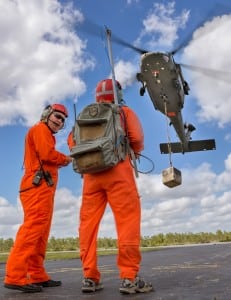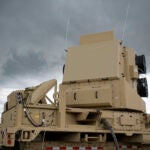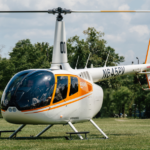
With the Army, Sikorsky [UTX] has successfully demonstrated optionally piloted flight of a UH-60 Black Hawk helicopter, something the company calls a significant step toward providing autonomous cargo delivery function to the Army. “The autonomous Black Hawk helicopter provides the commander with the flexibility to determine crewed or non-crew operations, increasing sorties while maintaining crew rest requirements,” said Mark Miller, Sikorsky vice president of research & engineering. “This allows the crew to focus on the more ‘sensitive’ operations, and leaves…












